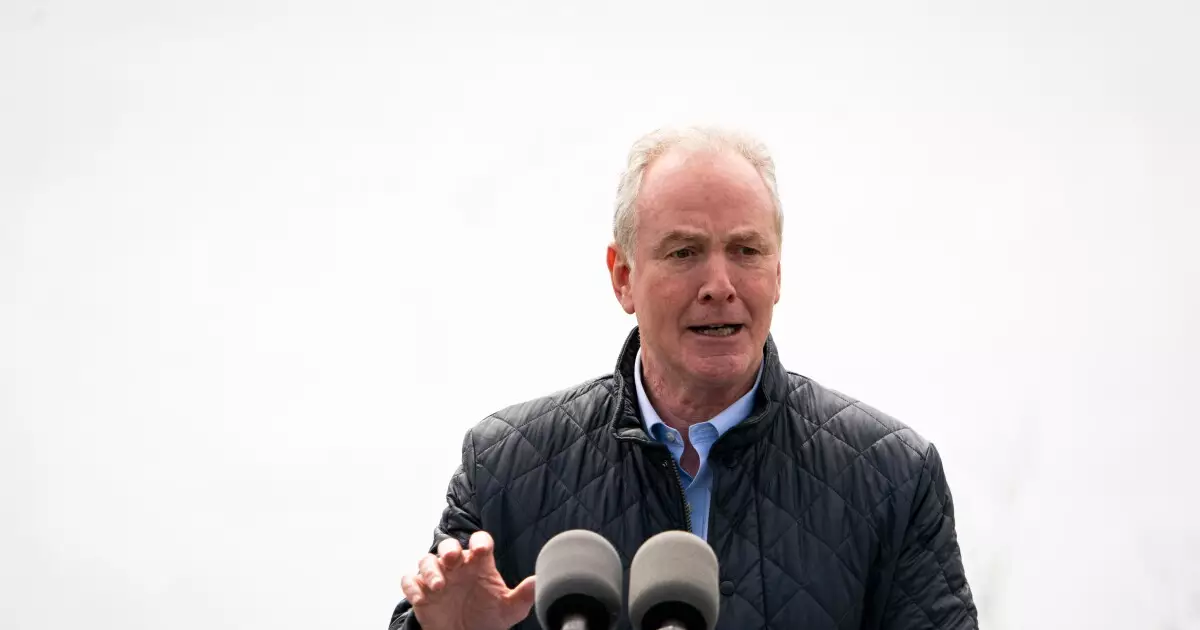The recent legislative developments on Capitol Hill encapsulate a week fraught with underlying tensions and significant decisions affecting federal operations. With a continuing resolution (CR) achieved, United States governance will remain operational until March 14. However, this temporary measure masks more profound conflicts that loom over the political arena, particularly concerning the contentious debate surrounding the debt ceiling.
While the CR provides a short-term solution, it reflects the persistent divisiveness among lawmakers and the pressing issues that require resolution beyond mere funding continuity. The acclaim for securing full federal funding for Maryland’s Key Bridge reconstruction serves as a stark reminder of the local priorities often overshadowed by national disputes. Senator Chris Van Hollen lauded the bipartisan effort to fully fund this critical infrastructure project that had suffered damage due to an unforeseen accident involving a cargo ship, illustrating how regional issues can garner attention amidst broader governmental dysfunction.
The financial commitment towards the Key Bridge symbolizes more than just infrastructural investment; it signals a concerted push from local representatives to ensure the federal government plays a role in state-level affairs. The bridge incident, which occurred in March 2024, had instigated debates about utilizing taxpayer money for repairs. Critics voiced concerns about federal expenditures on a toll bridge; however, the state’s promise to reimburse the federal government upon resolution of insurance claims appears to have persuaded many lawmakers.
Furthering D.C.’s ambitions for autonomy, the CR also included the transfer of the RFK Stadium site to Washington, a move championed by Congresswoman Eleanor Holmes Norton. The importance of local governance taking precedence shines through as the district fights against the constraints of federal oversight. This transfer, initially sidelined, highlights the importance of late-stage negotiations that can ultimately sway legislative outcomes.
In yet another win for Washington, approximately $90 million was allocated to facilitate the upcoming presidential inauguration. This funding, pushed for by the mayor and city council leadership, underscores the unique financial demands of the capital during such significant events. The backing from influential congressional figures demonstrates a recognition of the costs associated with political rites of passage, even as broader fiscal debates loom.
However, as praises are sung over local achievements, a political storm brews on the horizon concerning the debt ceiling. Former President Donald Trump’s demands to attach the debt ceiling increase to the CR turned the negotiations into a heated battleground, pitting Republican fiscal hawks against the leadership’s agenda. Trump’s strategic positioning—urging for immediate resolution—raises pertinent questions about bipartisan cooperation.
The reluctance of 38 House Republicans to endorse the continuation of funding frames a critical juncture for Speaker Mike Johnson and his leadership team. This rift hints at an emerging fractious landscape within the party that could ultimately undermine Johnson’s authority should disagreements persist and intensify.
Moreover, the ongoing discourse surrounding the Tax Cuts and Jobs Act (TCJA) poses yet another conundrum. As Jason Smith, Chairman of the House Ways and Means Committee, emphasizes the necessity of maintaining Trump’s tax policies, the implications for local stakeholders are profound. The expiration of significant tax provisions could destabilize municipal bonds, leading to broader long-term financial repercussions.
The continuing resolution and the recent legislative victories convey a precarious balance in the U.S. political landscape. The achievements of securing federal funds for local initiatives are commendable, yet they coexist with the looming shadows of fiscal discord, particularly regarding the debt ceiling. The complexity inherent in these negotiations reflects a broader ideological split within Congress, posing challenges for future governance strategies.
As lawmakers navigate these turbulent waters, the outcomes of these ongoing debates will undoubtedly shape the trajectory of the 119th Congress and the operational coherence of federal oversight, with far-reaching implications for both local and national constituents.


Leave a Reply